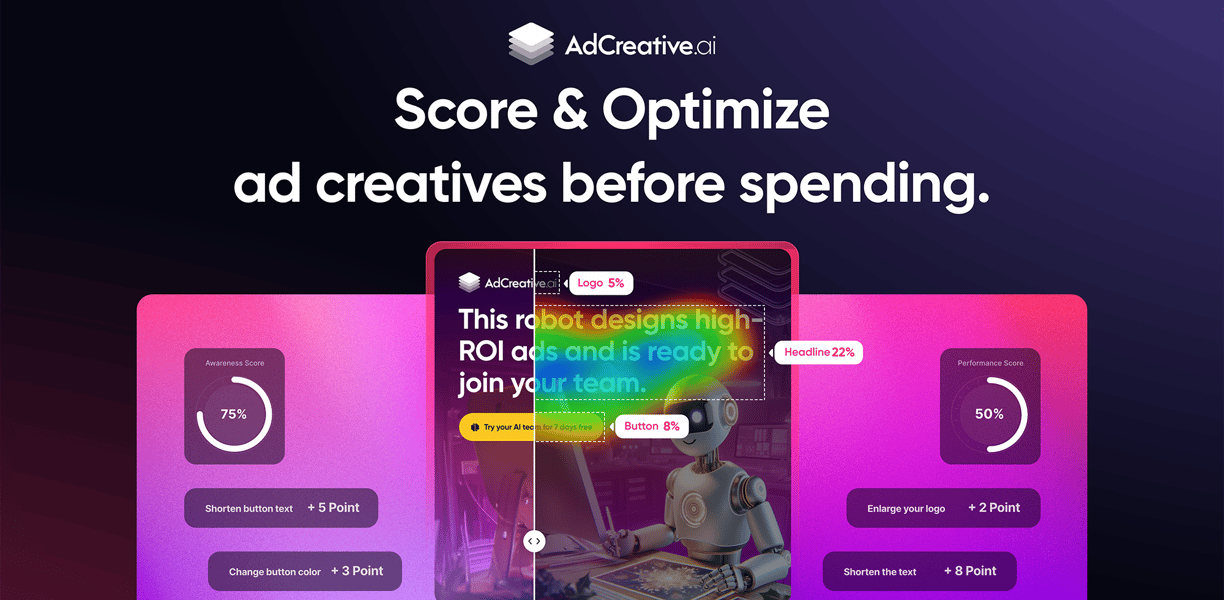How AI Is Enhancing Business Performance
AIBUSINESS AI


Artificial Intelligence (AI) is revolutionizing businesses' operations, offering unprecedented opportunities for innovation, efficiency, and growth.
This article explores the multifaceted ways AI enhances business performance, providing detailed examples, practical tips, and unique insights that will keep you engaged from start to finish.
Streamlining Operations
AI is transforming operational efficiency across industries. Businesses can achieve higher productivity and lower costs by automating routine tasks, optimizing supply chains, and improving decision-making processes.
Example: Robotic Process Automation (RPA)
RPA uses AI to automate repetitive tasks such as data entry, invoice processing, and customer service interactions. For instance, a financial services company can deploy RPA to handle thousands of transactions daily, significantly reducing the time and errors associated with manual processing.
Tip: Implement RPA in areas where employees spend excessive time on repetitive tasks. This allows your team to focus on strategic initiatives requiring human creativity and problem-solving skills
Enhancing Customer Experience
AI-driven tools are revolutionizing customer service by providing personalized and efficient interactions. From chatbots to predictive analytics, businesses can offer better customer experiences.
Example: AI-Powered Chatbots
Chatbots equipped with natural language processing (NLP) can handle customer inquiries 24/7, providing instant responses and resolutions. For example, a retail company can use AI chatbots to assist customers with product recommendations, order tracking, and return processes.
Tip: Integrate AI chatbots with your CRM system to personalize customer interactions based on purchase history and preferences. This personalization can increase customer satisfaction and loyalty.
Data-Driven Decision Making
AI enhances decision-making by analyzing vast amounts of data and providing actionable insights. This leads to more informed and strategic business choices.
Example: Predictive Analytics in Marketing
Using AI, companies can analyze customer behavior and predict future trends. For instance, an e-commerce business can leverage predictive analytics to forecast demand for certain products, optimizing inventory management and marketing strategies.
Tip: Regularly update your AI models with new data to ensure the accuracy and relevance of their insights. This continuous learning approach keeps your strategies aligned with current market dynamics.
Improving Product and Service Quality
AI technologies drive product development and quality control innovation, enabling businesses to offer superior products and services.
Example: Quality Control in Manufacturing
AI-powered image recognition systems can more accurately detect product defects on the assembly line than human inspectors. A car manufacturer, for example, can use AI to ensure that each vehicle meets stringent quality standards before leaving the factory.
Tip: Combine AI with IoT (Internet of Things) devices to monitor and analyze production processes in real time. This integration can help identify potential issues before they become critical, ensuring consistent product quality.
Enhancing Sales and Marketing Strategies
AI is revolutionizing sales and marketing by providing deeper insights into customer behavior and optimizing campaigns for better results.
Example: Personalized Marketing Campaigns
AI can analyze customer data to create highly personalized marketing campaigns. For example, a subscription service can use AI to tailor email marketing content to individual subscriber preferences, increasing engagement and conversion rates.
Tip: Use AI to conduct A/B testing on your marketing campaigns. This will help you understand which strategies resonate best with your audience and refine your approach for maximum impact.
Strengthening Cybersecurity
As cyber threats become more sophisticated, AI is crucial in enhancing cybersecurity measures and protecting business assets.
Example: AI in Threat Detection
AI systems can analyze network traffic patterns to identify unusual behavior indicative of a cyber attack. For instance, a financial institution can use AI to detect and respond to fraudulent activities in real time, preventing significant economic losses.
Tip: Implement AI-driven security solutions that can adapt to new threats as they emerge. Regularly update your AI models to ensure they remain effective against evolving cyber threats.
Boosting Employee Productivity
AI tools can augment employee productivity by automating mundane tasks and providing insights that enhance performance.
Example: AI-Powered Virtual Assistants
Virtual assistants like AI-driven scheduling tools can manage calendars, set reminders, and streamline communication. For example, a legal firm can use AI virtual assistants to manage client appointments, document preparation, and case research, freeing lawyers to focus on case strategy.
Tip: Encourage employees to embrace AI tools by providing training and demonstrating how these tools can enhance their productivity and job satisfaction.
Conclusion
AI is not just a buzzword but a transformative technology reshaping the business landscape. AI is a powerful ally in enhancing business performance by streamlining operations, enhancing customer experiences, driving data-driven decisions, improving product quality, optimizing sales and marketing, strengthening cybersecurity, and boosting employee productivity. Embrace AI's potential, stay ahead of the curve, and watch your business thrive in this new era of technological innovation.
Stay tuned for more insights and practical tips on how AI can revolutionize your business.





